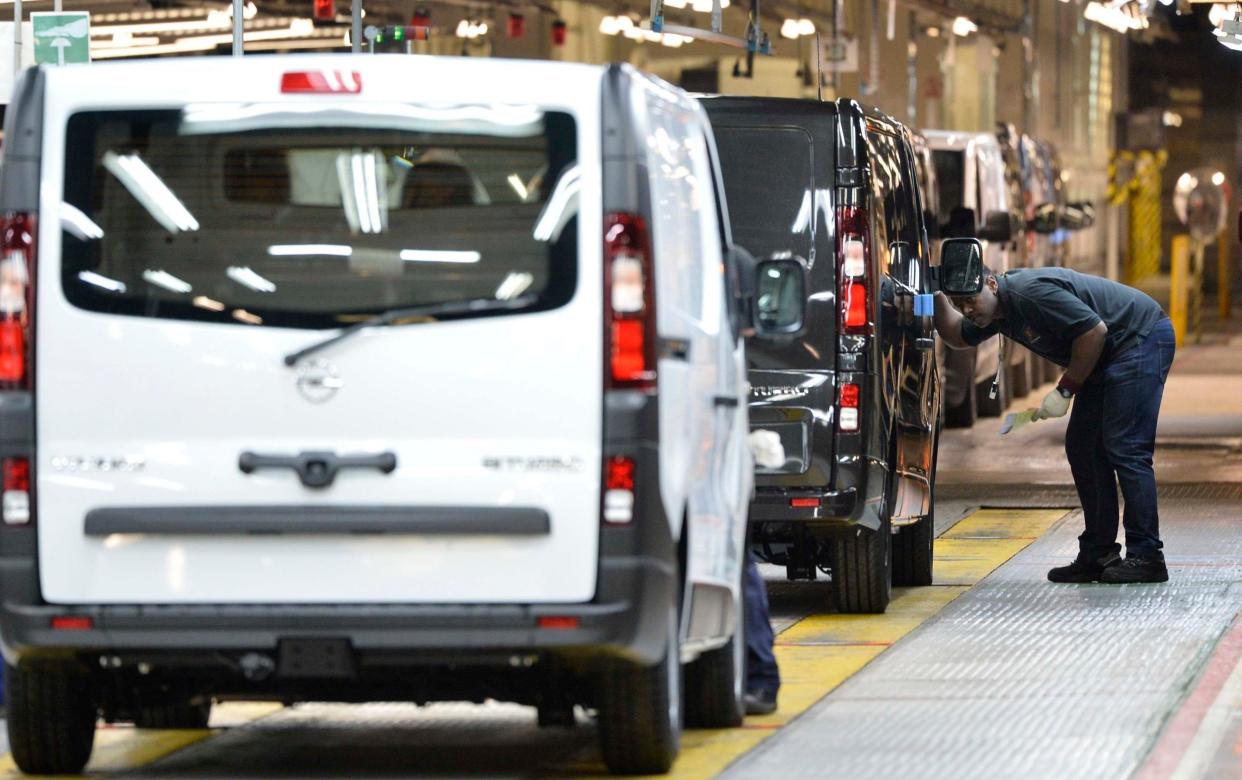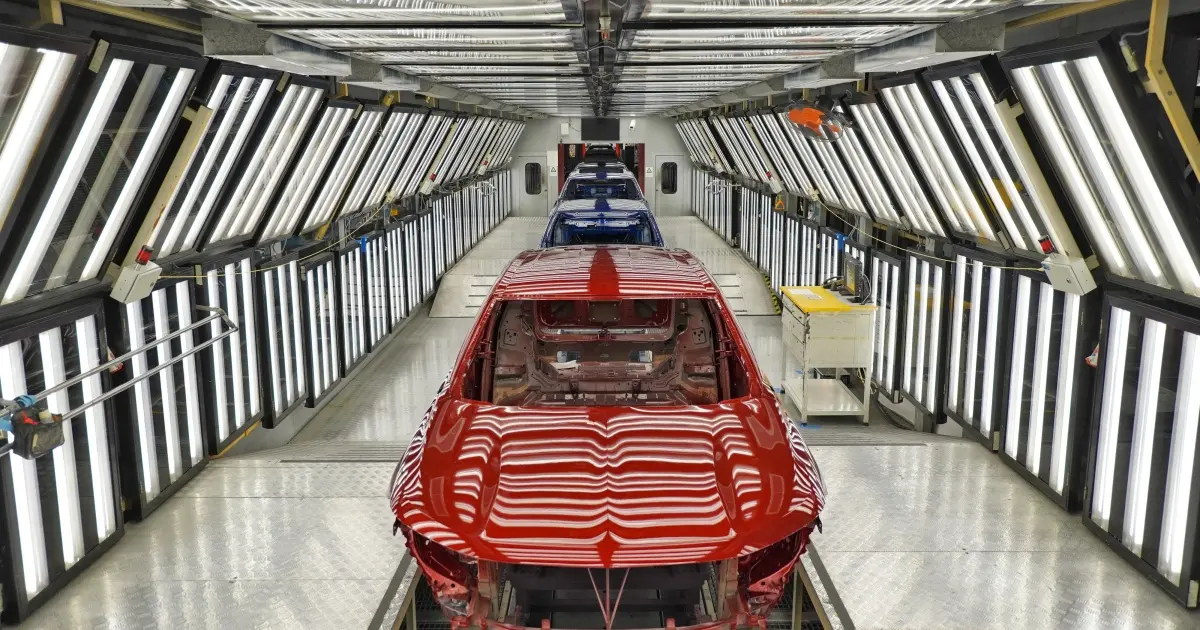Labour is preparing to soften its electric vehicle (EV) policies as the automotive industry faces increasing challenges with the transition away from petrol and diesel cars.
On Tuesday evening, Jonathan Reynolds, the Business Secretary, announced a review of the Government’s zero-emission vehicle (ZEV) mandate.
The announcement followed warnings from car manufacturers that the regulations threatened the future of the sector.
Vauxhall revealed on Tuesday that it plans to close its Luton factory, ending 120 years of production at the site and placing over 1,100 jobs in jeopardy.
Stellantis, Vauxhall’s parent company, attributed the decision to the pressures created by the ZEV mandate.This development comes after months of lobbying by carmakers.
Ford recently announced 800 job cuts in the UK linked to reduced EV production, while Nissan has sought a private meeting with the Business Secretary amid concerns it may exit the UK.
Elsewhere in Europe, governments are facing similar challenges with EV targets.
Porsche announced on Tuesday that it will continue producing petrol-powered vehicles “much longer” than anticipated, signaling a pullback from its electric ambitions.
Adding to the challenges, Europe’s leading carmakers saw more than €10 billion (£8.9 billion) wiped from their market value on Tuesday. The drop followed Donald Trump’s announcement of plans to impose tariffs on vehicles from Canada, Mexico, and China.
At a dinner with industry leaders on Tuesday, Mr. Reynolds announced plans for a fast-track consultation on potential changes to the ZEV mandate, which currently requires an increasing proportion of manufacturers’ sales to be electric over the next six years.
He stated: “We are absolutely committed to our manifesto commitment of a 2030 phase-out for new cars powered solely by internal combustion engines.
We are not changing our level of ambition for the transition, and there will be no repeat of the uncertainty generated by the previous administration.
“But at the same time, the Transport Secretary and I have heard you loud and clear on the need for support to make this transition a success, and that’s why we will be consulting with you on changes to the same mandate and inviting your views on options for a better way forward.”
These comments followed Mr. Reynolds’ earlier appearance before MPs on the Business and Trade Committee, where he acknowledged that the EV mandate was not “working as anyone intended.”
He remarked: “We have to accept and have to analyze whether the environment in the UK for automotive manufacturing is one that’s going to get us to the destination, in a way which keeps those jobs and industry in the UK.
“As a Government committed to both industrial strength in the UK and the transition, we’ve got to be willing to work with industry and ask ourselves: Are specific provisions of that policy working as they should do?”
Mr. Reynolds suggested that if not, “a bit of a pragmatic rethink” would be necessary.

While the Government is expected to emphasize that the 2030 ban on new petrol and diesel vehicle sales remains firm, it is likely to offer manufacturers greater flexibility.
Carmakers may be allowed to delay reductions in petrol and diesel sales ahead of 2030 if they compensate by selling more EVs later.
Such measures aim to minimize immediate risks of job losses, reduced investments, and factory closures, according to a source familiar with the discussions.
The source added, “We’ve heard what the car producers have to say and there will be further engagement. The consultation will be a key mechanism for industry to set out the challenges it faces, which will then be taken into consideration.”
Currently, the ZEV mandate imposes strict fines on carmakers failing to meet sales targets. This year, 22% of new vehicle sales are required to be EVs, a percentage set to increase to 80% by 2030.
Labour has reiterated its commitment to the 2030 ban on petrol cars, reversing a previous government decision to delay the deadline to 2035.
It is believed that the Government will propose a system allowing companies that fail to meet initial EV targets to avoid penalties if they exceed those targets in later years.
Declining Demand
Consumer interest in EVs has fallen short of expectations. To date, only 18% of new cars sold this year are electric, leaving many manufacturers unable to meet the mandated targets.
Established businesses are struggling to adapt. Jaguar, which aims to transition to an electric-only brand, faced criticism last week when its advertising campaign for a new EV lineup was widely mocked.
Ford’s job cuts in the UK are part of a broader reduction across Europe, while Volkswagen plans to close at least three factories in Germany.
Stellantis, which also owns Peugeot, Fiat, and Citroën, cited the ZEV mandate as a “significant part” of its decision to close the Luton plant, which employs 1,123 workers.
The company, which committed to EV production at the site just nine months ago, described the closure as a move towards “greater efficiency.”
Stellantis will invest £50 million in its Ellesmere Port facility and offer affected workers opportunities to relocate, although the number of UK-based employees will decline.
Ellesmere Port, the UK’s only factory exclusively producing electric vans, will remain operational, while Luton had been set to begin EV production next year.
Stellantis representatives attended a meeting last week with Transport Secretary Louise Haigh, who expressed the Government’s willingness to collaborate with the industry.
Downing Street called the closure a “commercial matter for Stellantis” and pledged to work with the company and trade unions on the transition.
Union representatives at Unite described the announcement as a “complete slap in the face” for Luton employees, calling the closure “unacceptable.”

